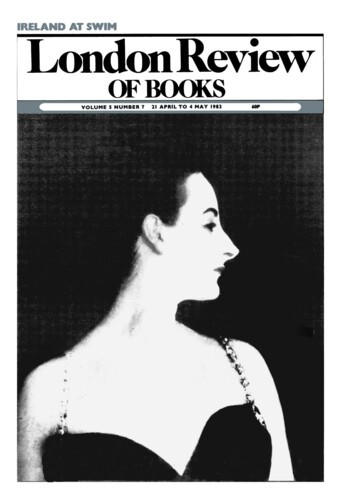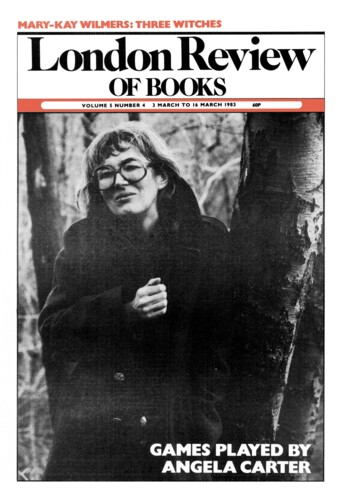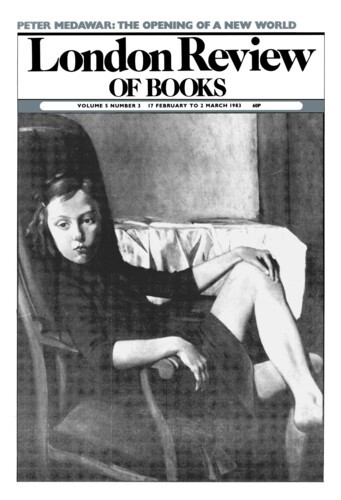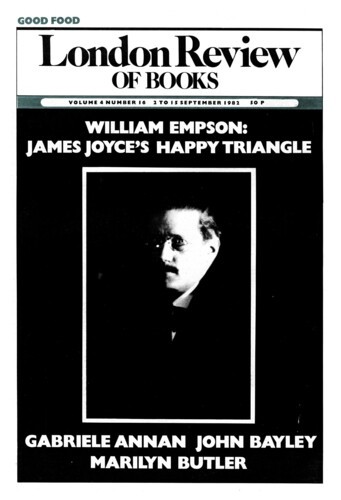Modern Shakespeare
Graham Bradshaw, 21 April 1983
Ann Pasternak Slater’s Shakespeare the Director is the best new book on Shakespeare I have read in the last year, and is prefaced by generous tributes to and from the General Editor of the New Arden Shakespeare. Nonetheless, that edition is unsuited to her critical purposes, and she explains that her ‘sole criterion in each case is to use the text supposedly closest to the author’s manuscript.’




